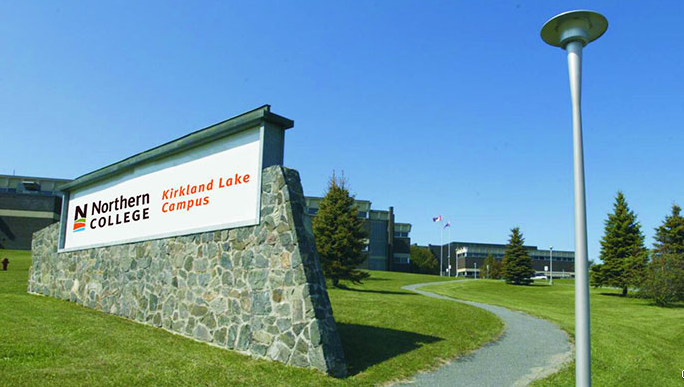Ontario public college and its private partner turned against themselves over the revoke of hundreds of international students admission offers
A high-profile snafu last summer in which 500 international students’ admissions were revoked saw a public college in northern Ontario and its private partner in Toronto turning against one another, documents reveal.
Emails obtained under a freedom-of-information request have pulled back the curtain on internal communications as Northern College in Timmins rescinded admission offers to hundreds of international students who had been headed to the school’s private partner, Pures College of Technology.
The incident added to scrutiny of Canada’s international student program and the partnerships between public colleges and private institution partners, which have been targeted by Immigration Minister Marc Miller in his recent reforms to rein in the country’s international student intake.
But the flurry of emails suggest that Northern initially considered taking even more drastic action that would have affected nearly three times as many potential students, and that this wasn’t the first time such a measure had been taken. The correspondence shows the partner schools threatening each other with legal action for breaching obligations under their public-college private partnership agreement. They also discuss public perceptions of the matter.
“I do not believe this will turn into a PR issue based upon the timing of these rescinding/deferrals,” wrote Northern’s president and CEO Audrey Penner in an email in July to the Ontario Ministry of Colleges and Universities.
“The potential students involved are at the front end of the enrolment funnel, not in Toronto waiting to walk through the doors to get started,” she wrote, pointing out that many of the affected students had yet to arrive in Canada.
“Doug Brewer reached out to me last week, with concerns as he was hearing things about PR. I have let him know the current status,” Penner added, referring to the then-chief of staff for Colleges and Universities Minister Jill Dunlop.
Education agent and policy analyst Earl Blaney, who obtained the freedom-of-information response, says he was struck by how little was mentioned in the email chain among Northern, Pures and ministry staff about how the mass admission revocation would disrupt students.
“There are the three parties that are said to protect students’ best interest,” Blaney told the Star. “They’re more worried about PR than anything else.”
Last July and August, 504 prospective international students were notified by Northern College that their admission had been withdrawn, and offered full refunds of fees paid to the school, less applicable third-party processing fees.
The administration would not cover non-refundable airline tickets, according to the email by Penner. At the time, Penner told reporters the problem was due to a higher visa approval rate from the Immigration Department than had been anticipated, leading to a situation of “being oversubscribed” on their campuses.
The 69 pages of documents shed light on disputes between the two business partners over the acceptance of 5,015 international students for the fall semester last year at Pures’s campus.
Northern’s correspondence indicated it was the second semester in which the number of registered international students exceeded the target of 3,500 students, and that it had asked Pures on at least seven occasions since last February to assist the administration to “prevent overenrollment.”
According to one email by Penner, Northern had gone back and forth with Pures officials on the fall registrations before the public college moved to revoke its letters of admission to some students when Pures allegedly delayed notifying the students.
“We are directing PURES to rescind 1,400 letters of offer for the fall term,” Penner, who was receiving social media monitoring reports twice daily of any post about the revocation situation, wrote to the province on July 11.
“We did take similar action for approximately 1,000 offers in March to manage the May intake, and there was no public backlash on that.”
In a response two days later, Tim Li, a senior manager at Pures, complained in an email to provincial officials that Northern had already collected the student fees and issued the students’ fee receipts.
“Not honouring the students’ enrolment will result in serious repercussions to Pures, Northern and to the Ministry,” Li wrote, seeking the province’s mediation. “Such a large number of affected students will make a social media nightmare. The reputation of Pures in the international market will be damaged, as will the reputation of Ontario Public Colleges.”
With no resolution in sight, Pures escalated the dispute a week later by sending an ultimatum to Northern: cease the revocation plan or a formal dispute would be filed against the public college.
“Northern should not breach its obligations to the students (and to Pures) in such a cavalier and callous manner without regard to the students’ financial and/or personal circumstances and/or the losses and damages that Pures expects to incur and suffer as a direct result,” said the legal letter sent in an attachment by Pures president Flora Wu at 8:38 p.m. on July 20.
About a week later, a law firm representing Northern responded, counterclaiming that Pures had failed to provide the requested enrolment projections, repeatedly attempted to overenrol students in the joint programs, and not acted reasonably to help the public college in maintaining its caps for the fall 2023 and winter 2024 semesters.
“Northern College made every effort to issue revocations to students who would not yet be expected to be in Canada and who will have time to address this change,” said the letter from the law firm, Borden Ladner Gervais.
“It is very common for one college to help a student get directed to another college to help students find the appropriate program. PURES should assist the students that require assistance in finding another program and another (authorized) college or partner. The students who received revocation letters are not without options.”
In one of the last emails on the day in August before the freedom-of-information request was filed, Penner, who retired from Northern in December, updated the provincial ministry that about 100 students had requested a refund and another 150 had not responded to the revocation decision. The school had spots for those who were due to fly in and offered a $1,000 bursary to those who agreed to defer their study, she noted.
Northern and Pures have had a partnership arrangement since 2015. The Immigration Department’s data showed Northern received 3,591 new study permits in 2021, 5,627 in 2022 and 3,937 last year, while Pures only got four approved for its stand-alone programs over the three-year period.
Such partnerships are sanctioned by the province. They allow students who graduate from the partnered programs at a private school, in this case Pures, to receive a graduation certificate from the public college, in this case Northern, in the process becoming eligible for a coveted post-graduation work permit — and potential permanent residence in Canada.
Few international students are attracted to remote public colleges but the partnerships give taxpayer-funded post-secondary institutions a bigger share of international enrolment — and revenues — through their private partners in Greater Toronto, whose international graduates are otherwise not eligible for a post-graduation work permit.
Currently 16 of the 24 Ontario public colleges have these partnerships.
In a statement to the Star on Tuesday, Northern College said the overenrolment last fall put the school in an “awkward position” to ensure the kinds of “quality assurance” were in place for student success. Since then, they have collaborated more closely and updated operating procedures to prevent the same issue from occurring.
“This change of approach has seen our private partner enrolment numbers remain at an acceptable level since this incident and we have failsafes in place to ensure this doesn’t happen again,” Northern said.
Pures said it remains committed to its public college partner and they work in good faith together to provide a high-quality education to students.
“The decision that was made last summer was a difficult one,” Pures said in a statement. “We are moving forward with our partner and remain focused on the future.”
This article was reported by The Star













